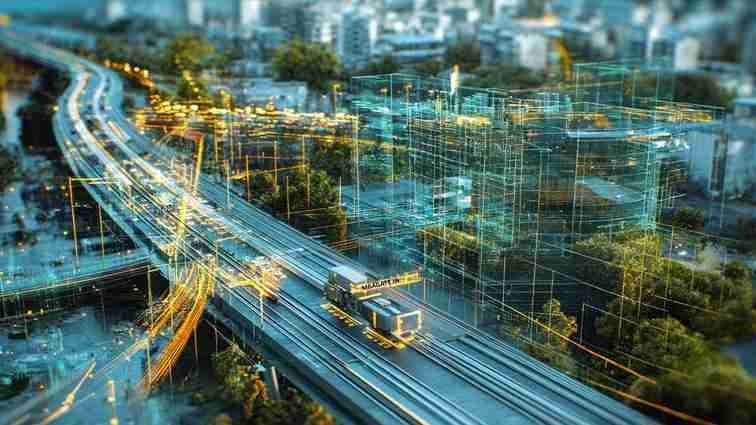MBA in Infrastructure Management
Table of Content
-
- + more items Show less
The curriculum integrates managerial concepts and technical information. Project management, finance, construction, operations and environmental planning are among the courses that students learn. They also understand legal, regulatory and policy issues relating to infrastructure development. The training seeks to ensure effective leadership, analytical and decision-making abilities.
Infrastructure development is essential to the development of a nation. Governments and business companies heavily invest in this sector. Due to urbanisation and the demand for sustainable development, more and more demand for infrastructure management professionals is being felt. This MBA equips students with skills to become an infrastructure project manager, urban planner, head of operations or consultant.
The curriculum generally takes two years and consists of classroom learning, case studies, internships and projects in industry. Infrastructure finance, risk management, public-private partnerships (PPP), sustainability, contract management and strategic planning are common topics. Electives in areas like smart cities, transport systems and renewable energy are also offered in some programs.
A pre-experience background in engineering, architecture, urban planning or management is preferable, but students from other fields can also apply. All institutes require candidates to clear entrance examinations like the CAT, XAT, GMAT or institute's own admission test.
Graduates of this MBA can join construction, infrastructure consultancy, real estate, government departments, energy companies and financial institutions. They can also engage in foreign projects, especially in underdeveloped countries where the development of infrastructure is highly important.
Budgeting, management of stakeholders, legal compliance and planning for sustainability are some of the skills acquired during the program which can be applied across different fields. Such graduates are more attractive to firms.

Highlights
These are some of the key details regarding the Infrastructure Management MBA. For the benefit of the interested students, several important details are provided, such as the course name, level, duration and admissions procedure. After earning their degree, students also consult this information regarding the packages that businesses offer. Students who want to pursue an MBA in Infrastructure Management can review the details provided below.
What is Infrastructure Management?
Indian infrastructure development is largely based on the private sector. The infrastructure development largely relies on satisfying the financial appeal of investors. Some deemed universities in India have initiated this course. Aside from the major core subjects, the course also has electives. To help students learn better, individual projects and site visits are integrated into the course curriculum.
This course addresses the most prominent areas of infrastructure, offering practical knowledge and overall management skills necessary to seek infrastructure career opportunities. These career opportunities are available both in India and internationally. The skills gained through this degree allow students to handle massive projects via advanced planning. This course has been designed by industry experts and is offered at several recognised universities.
Students who finish this degree can work and pursue further studies. If they wish to continue education, they could apply for a Ph.D. in the same subject. Upon completion of a Ph.D., students can become teachers in various deemed universities.
The rundown of what this degree entails is encapsulated in the subsequent bullet points:
An MBA in Infrastructure Management is a two-year postgraduate degree.
This course educates learners how to bid, analyse and handle the different requirements of the commercial and governmental markets.
The course curriculum entails all the elements of design, sustainable infrastructure plans and goals.
The course curriculum helps the students build both technical and management skills needed for decision-making. These skills are also necessary for managing infrastructure, accounting, finance, company law, marketing and all other activities associated with infrastructure.
This degree provides opportunities for students to seek a range of career options.
Why one should choose an MBA in Infrastructure Management?
MBAs in infrastructure management are gaining popularity. These graduates have a lot of professional choices in different industries. One can work as a logistics coordinator, infrastructure engineer, information technology architect, financial manager or construction project manager, among other positions. Many large companies recruit students with this degree.
These students are also able to pursue further studies, such as Ph.D. programs within the same discipline and become lecturers in a range of deemed universities. The MBA graduates with this degree are normally given a good remuneration package by most respectable employers in this line of work, a career that is increasingly sought after. The salary range can range from ₹ 8.00 to ₹ 27.09 Lakhs per annum.
Eligibility
The following are the requirements for admission to the MBA in Infrastructure Management:
They must have a bachelor's degree. The degree may be of any field and from any recognized university. Passing 50% or more marks or equivalent CGPA is necessary for admission.
Reserved category students (OBC/SC/ST) have an avenue of getting a 5% concession on the mandatory 50% percentage.
By presenting a certificate of no objection from their college principal, students can apply at the conclusion of their last year.
Entry into top-ranked universities demands a minimum of 60% score.
Applicants to top colleges need to excel in entrance exams.
Admission Process
For applying to an MBA in Infrastructure Management, students need to fulfill the following admissions requirements.
Very few schools and colleges have requirements for at least one year of experience in a relevant field.
Experience is necessary in order to understand management studies. People can more effectively hone the skills necessary for development in the future.
Depending on the requirements of each private university, students must pass entrance examinations such as the CAT, CMAT, XAT, SNAP, GMAT and others. Admission in this course will be made on cut-off or score basis.
All selected candidates are required to complete the online or offline admission form and submit all required documents, such as their Aadhar card number, residence proof, 10th and 12th residency grade sheet marksheets and graduation marksheet.
After clearing the entrance tests mandated by their respective universities, the students will have to undergo the group discussion and personal interview phases. These phases are conducted to assess students' communication and problem-solving skills.
The final selection for the institutions is done on the basis of the combined score, which is calculated utilizing the admission exam score, GD/PI performance and professional experience.
The outcome of the entrance test and interview decides entry into the MBA course in entrepreneurship management.
Students can confirm their documents prior to paying the fees and registering for courses.
Subjects in MBA in Infrastructure Management
Graduates of an MBA program in infrastructure management have a variety of talents. This degree's courses provide both case-based practical application of the theories and concepts and experimental learning. Summer internships, on-site projects, workshops and guest lecturers are all part of the curriculum to assist students learn more effectively. Students can study theoretical ideas in several of the courses, such as Infrastructure Business Environment, Fundamentals of Statistics, Managerial Economics and Marketing Management. Workshops, on-site industry visits and summer internships aid with their acquisition of real-world experience.
*Note- These subjects are taken from the curriculum of Adani University
List of Colleges with specialisations in Infrastructure Management/ Specialised PGDM/MBA in Infrastructure Management- Fees
This is a list of Indian institutions that provide an MBA program in infrastructure management. Important details about the infrastructure management course are displayed in the table below. The program name costs, average package offered, duration, and top universities offering an MBA in Infrastructure Management are all included in this information. The purpose of this information is to help students who want to pursue a degree in infrastructure management. Students who wish to pursue this degree may find this information useful. These universities provide an MBA in Infrastructure Management as a one-year, two-year or certification program that covers every topic associated with the degree.
Colleges with specialisations in Infrastructure Management/ Specialised MBA/PGDM in Infrastructure Management: Average Package
The following are the top private and public colleges for an MBA in Infrastructure Management. The average package for these programs is also provided below. The Indian School of Business is the finest college, offering a 12-month course with an average annual package of ₹27.09 Lakhs.
Future Scope
The market value of pursuing an MBA in infrastructure management has seen a rise in the last few years. This topic is highly sought after by students. The demand for an MBA in infrastructure management is rising as the development of the country's infrastructure goes on. The number of graduates pursuing infrastructure management has risen, as has their industrial exposure. The postgraduate course provided by most business schools equips graduates with an MBA in Infrastructure Management with a variety of job opportunities in both the commercial and public sectors, all of which are well-paying.
This certification provides a large number of work opportunities. There include government or private multinational enterprises, infrastructure financing, real estate finance, facilities management, building and project management, etc. Numerous prominent universities provide lecturing opportunities. If students wish to further their studies, they may take a Ph.D. or MPhill in the same field. Research opportunities may become available with a Ph.D. in the same discipline.
Conclusion
An MBA in Infrastructure Management is a useful credential for those who wish to manage and innovate in the building and upkeep of the infrastructure of the country. This degree enables students to build and sustain the infrastructure of the country. The program combines fundamental business knowledge with specialised expertise in fields such as project management, urban planning, transportation, energy, and public policy.
The degree develops strategic thinking, financial acumen, and leadership skills, all of which are necessary for dealing with the complex difficulties of the infrastructure sector. Finally, it provides opportunities for influential jobs in government, private sector and multinational companies that are committed to improving the country's future.
FAQs
For those passionate about infrastructure, there is a two-year full-time MBA in infrastructure management. Students who want to work in infrastructure are the primary target audience for this program. Because it may create more job possibilities, infrastructure is crucial for the nation's quicker economic growth and poverty reduction. It opens up various sectors such as trade labor and employment.
The Infrastructure Management course allows students to express creativity in the industry worldwide. Moreover, it provides a wide array of options for employment in Infrastructure development, Infrastructure specialist, financial analysis, real estate development, infrastructure policies, supervision of the project and many more.
An infrastructure engineer is responsible for designing, building and maintaining the company’s IT infrastructure environment. They are the professionals who are responsible for setting up and maintaining computing infrastructure for a firm.
Infrastructure systems act as the foundation of economic activity, trade, investments and movement of people. Developing the country's infrastructure will lead to the generation of more and more employment opportunities for people of all classes.









